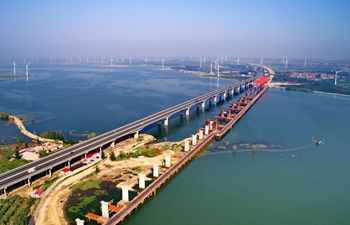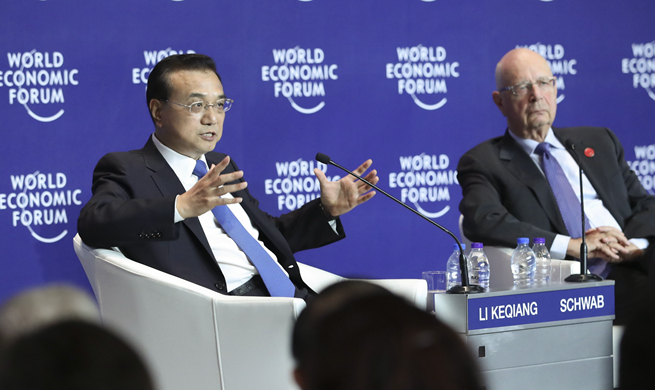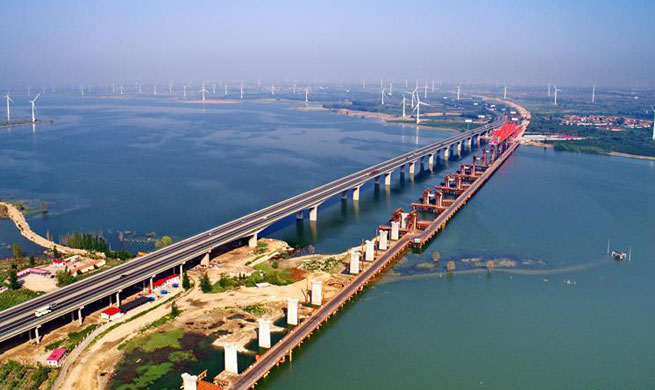DUBLIN, June 28 (Xinhua) -- The future of UK-Ireland trade is "wrought with challenges and uncertainty" as the impact of Brexit is as yet unclear, according to an Irish expert on Wednesday.
Katie Daughen, head of Brexit research at the British Irish Chamber of Commerce, said Ireland exports 16 percent of its goods and services to Britain while Ireland relies on Britain for around 27 percent of its imports.
The importance of the British market to Ireland is even more significant when looked at in the context of Irish indigenous firms which rely on the market for 50 percent of their exports.
Citing the agri-food sector as being particularly vulnerable to the Brexit outcome, she warned that all businesses trading with Britain would be affected by the UK leaving the customs union.
"Much of the discussion so far around future trading has focused on tariffs and, while many of the main commodities traded between the two islands -- most notably in the agri-food sector -- might attract substantial tariffs, all who trade with the UK will incur additional costs due to non-tariff barriers," said Daughen, when delivering an address to the Irish Centre for European Law (ICEL) at Trinity College Dublin.
She quoted studies from the Organization for Economic Cooperation and Development (OECD) as saying that the non-tariff costs of trading across a border can lead to a 24-percent increase on the cost of a transaction.
The Irish expert said Brexit posed a particular challenge to all-island trade and could result in a decline in cross-border trade.
"Trade into Northern Ireland could reduce by 14 percent while trade from Northern Ireland could reduce by 19 percent. With the potential currency exchange rate change, these figures change to 21 percent and 11 percent respectively, resulting in a loss of trade of nearly half a billion euros (570 million U.S. dollars)," she said.
When discussing the economic impact of Brexit in the UK, Daughen said Brexit was already starting to hit the British economy.
In Britain, wages are stagnant and growth in retail sales is at its lowest level since April 2013, she said.
Producer price inflation currently stands at 11.6 percent while the consumer prices index is at 2.9 percent, the highest rate since April 2012, she added.

















